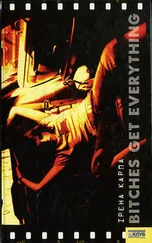She walks over to the balcony, opens the shutters and — with a quick prayer asking for the sight of death to be bearable — looks down onto the street below. But there is no street, only a thicket of men. Of course. She is so much closer to them now than when she was on the roof. She could lower herself off the balcony and jump down onto the shoulders of the men below, who might not even notice her until they felt her tread. They are so handsome, these men of Peshawar. She notices it with pride, as though the good looks reflect back on her. How silly. And yet, this is the first time she’s seen such a gathering. Men of Peshawar, in row after row. The traders of Bukhara and Tibet and Tashkent and Farghana and Delhi and Kabul and China are all absent from the Street of Storytellers. She thinks of her father, standing up here, his arms open wide to the street below, his voice filled with pride as he says, Peshawar, the Heart of the World, pointing out all the men of different nations who throng its street.
She thinks all this, even while trying to make sense of what’s happening below. Everything seems to have stopped. Or paused. No one is leaving, but no one is fighting or calling out slogans. An elderly Peshawari man is standing on a fire truck, near Kabuli Gate, nodding at something said by the men at the front of the gathering, and then turning to address the English officers. The dead horse has turned dark in clumps, the darkness composed of something living which pulses and swarms. She turns her face away and finds herself looking straight into the raised glance of a man in the street below. Before she can retreat indoors he places his palms together and raises them in supplication.
— Water.
She nods, yes of course, they must all be thirsty, and this at least she can do.
Diwa is strong — she can carry rolled-up carpets that her younger brother is too feeble to hold on to — but even so her arms ache by the time she has carried the earthenware vessel from the kitchen and hoisted it onto the balcony railing. One hand holding it in place, she uses the other — with a certain flourish — to whip off the tin cup which she has balanced on her head. But here she is confronted by the empty space between her hand holding the cup and the man below waiting to receive it. The two of them look at each other, blinking in perplexity for a moment, and then he taps on the shoulders of the two men standing next to him and each crouches down with interlocked palms.
And there he is, raised above the crowd, close enough that her outstretched fingertips could touch his. His eyes are on the tap near the base of the earthenware vessel, but she is aware how easily he might glance up and see her watching him. As any man on the street below might glance up and see her watching him. She has become more accustomed than she’d realised, in this last year, to the invisibility conferred on her by a burqa, its gift of allowing the wearer to stare without being noticed, drinking in the unseeing sight of men. She is entirely jumbled about whether she wants him to look up at her, or not.
He closes his eyes and raises his face towards her. She angles the earthenware vessel, and opens the tap. A rope of water slips out, beginning to unbraid just before his mouth receives it, some of it splashing his cheeks and chin. She watches his throat work, gulp after gulp, until with a splutter he turns his face away and she stops the flow of water. The two men lower him to the ground, and then take turns being lifted up to drink. And so it goes on. One man after another taking position just beneath her balcony. She starts to feel desperate. There are hundreds down there, and the sun is getting hotter. Her arms ache from holding the vessel in place, her back aches. She is thirsty herself, but it seems indulgent to take a drink. She stops noticing the individual faces of the men, her concentration unwavering on the clear, beautiful water entering thirsty mouths.
Then a hand grabs at the fabric of her kameez and pulls her backwards. The earthenware vessel crashes to the balcony floor, and she hears the man who was just raised up cry out. She is being pulled back, back, away from the balcony, into the room, flailing.
— Have you gone mad?
Zarina slaps her across the face. An odd silence follows the sound of palm striking cheek, one not of shock or pain but of something dramatic shifting in a relationship and as if to confirm that things have turned on their head Zarina sits — collapses really — onto the bed and begins to weep. This woman who Diwa has always viewed as something out of a tale of valour has turned feeble at the mere scent of battle. The knife she’d carried this morning is on the bed, sheathed, merely decorative. Diwa tries to wipe the clinging red clay from her clothes, and only succeeds in smearing it.
— Now I look like a Khudai Khidmatgar too.
There is no response beyond more weeping. Not a sorrowful weeping but a jagged little-girl-who-lost-her-toys weeping. Shrugging, Diwa picks up a glass bottle filled with water and drinks, holding the mouth of the bottle a few feet away from her face. It makes her feel a sense of kinship with the men below.
— Where is my brother? Diwa asks.
— I don’t know. I couldn’t find him.
— How did you get back here?
— The soldiers let me through. They said women shouldn’t be out there.
Zarina lies back, one hand covering her face which is splotchy with dye and emotion. She is clearly in need of some comfort, but Diwa is too annoyed at the manner in which her sister-in-law pulled her away from the men, as though she were a child. It’s clear, she is the heroic one, the water carrier in battle, and Zarina is just a frightened girl. The three-year age gap between them seems to have reversed, and widened.
— Everyone out there could see you, Diwa. So why didn’t your brother come to stand beneath the balcony and shout at you to go inside?
— Why should he? I was helping. Couldn’t you see that?
— I could see you. So could all the soldiers with guns.
She reaches out for the glass bottle in Diwa’s hand and presses her forehead against it.
— I thought I saw him. Your brother. I was standing under the watch-shop awning and one of the men who had been wounded, they carried him there, into the shade, trying to stop the bleeding. I couldn’t see his face at first, but I saw blood everywhere, and I saw his sleeve with a long tear through it. Just like that kameez your brother won’t throw away because he was wearing it the day I walked into your house for the first time.
She rocks herself back and forth silently, and once more it is Diwa who is the child, knowing that she is watching both the shining promise and the dark pain of adulthood, enmeshed. It takes a moment to realise what Zarina has just told her.
— Was he badly hurt? The man with the torn sleeve?
A tiny shrug. A shrug which says, It wasn’t your brother, so what I felt was relief.
— There was a lot of blood, Zarina says.
— Did he say anything? Was he in a lot of pain?
— Why are you so interested? What’s this?
Zarina lifts up the sleeve of the frock-coat, catches a whiff of something which makes her bend more closely towards the fabric. She has no sooner found the bullet hole than she sees the bullet lying on the bedcover.
— Diwa?
Diwa pulls the frock-coat into her own arms, says, Tell me about the injured man.
Zarina stands up, bullet in hand, and walks across to the shattered mirror. She places the bullet against the dark circle and it slides in.
— Where were you when this happened? Whose coat is this?
— Tell me about the injured man.
— Whose coat is this?
— Tell me about the injured man.
— What is there to tell? He was wounded, he was in pain. Probably delirious. He kept shouting, My turban, my turban.
Читать дальше












